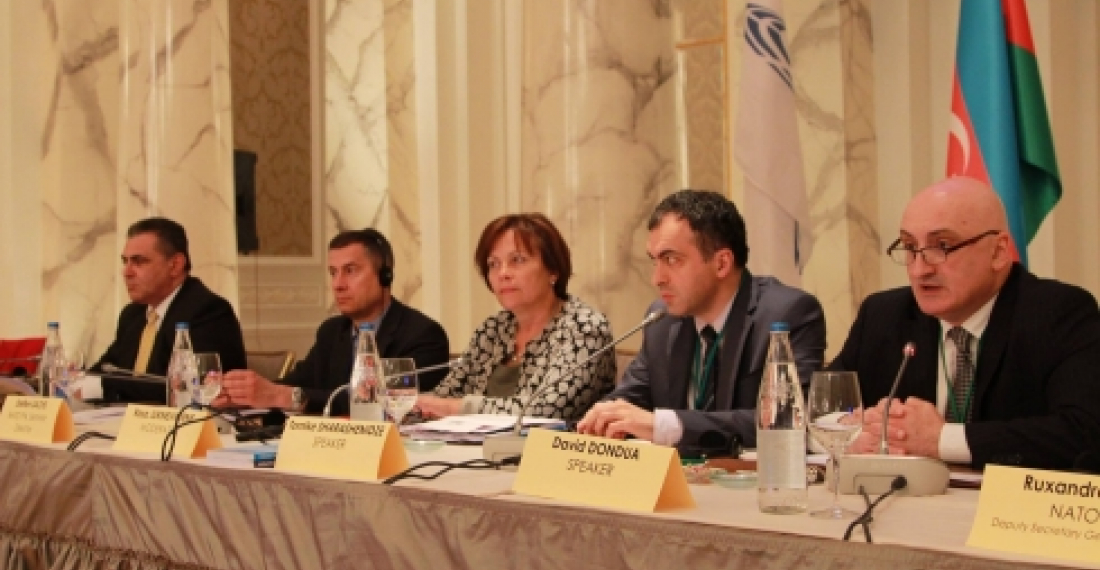Participants hail the NATO PA event in Baku as an important contribution to public diplomacy and welcome the spirit of openness during the event despite some tense moments.
Parliamentarians from NATO member states and partner countries continued with their meeting in Baku yesterday. Focus on Tuesday turned to Georgia and the country's quest for European and Euro-Atlantic Integration. The discussion was led by a panel consisting of David Dondua, Deputy Minister for Euro-Atlantic Integration in the government of Georgia, Tornike Shrashenidze from Georgia's Public Administration Academy and Dennis Sammut from Oxford University. The session was chaired by Lithuanian MP Raza Jukneviene.
The Georgian speakers outlined the progress that Georgia had made in its quest for European and Euro-Atlantic integration but expressed disappointment that the possibility of Georgia getting a membership perspective at the forthcoming summit in Wales had already been ruled out. Deputy Minister Dondua said that all Georgian governments regardless of the party in power, had been committed to the process of European and Euro-Atlantic integration and that this was the overwhelming desire of the Georgian people, but there were small elements in society who were agitating against this. So far these were isolated elements but frustration with progress in the process could increase their numbers. All three speakers hailed the progress made towards the signing of an Association Agereement with the EU which will take place on 27 June.
Senior Georgian politician Giorgi Baramidze, who is also attending the seminar, warned against complacency by the European and Euro-Atlantic institutions which could contribute to cynicism amongst the Georgian people.
Dennis Sammut said that Georgia on Sunday held good local elections and this was yet another important step in strenghtening Georgia's credentials towards achieving its European asspirations. He said that what was now at stake was not Georgia's credibility, but that of its European and North American partners. The conditions that had been made to Georgia were on the way to being fulfilled and the process of embedding Georgia in NATO and the EU must now start in earnest. Sammut said that for Georgia Russia remains the elephant in the room, and Georgia needs to take passion out of its relations with Russia and engage with the country in a professional and calculating way. Strong diplomacy has to be Georgia's first line of defence, Sammut said.
A number of MPs from NATO member states took the floor to express support for Georgia and for Georgia's NATO membership after the presentations by the members of the panel.
The 86th NATO Parliamentary Assembly Rose-Roth seminar will conclude on Wednesday in Baku. The seminar has been overshadowed by sharp exchanges between the Armenian and the Azerbaijani delegations at the meeting resulting in some tense moments, but participants told commonspace.eu that they were impressed by the openess of the discussions during the event, and hailed the meeting as an important contribution to public diplomacy in the region.
source: commonspace.eu
photo: The panel on Georgia at the NATO Parliamentary Assembly panel in Baku on 17 June 2014. (Picture courtesy of the Nato PA)







